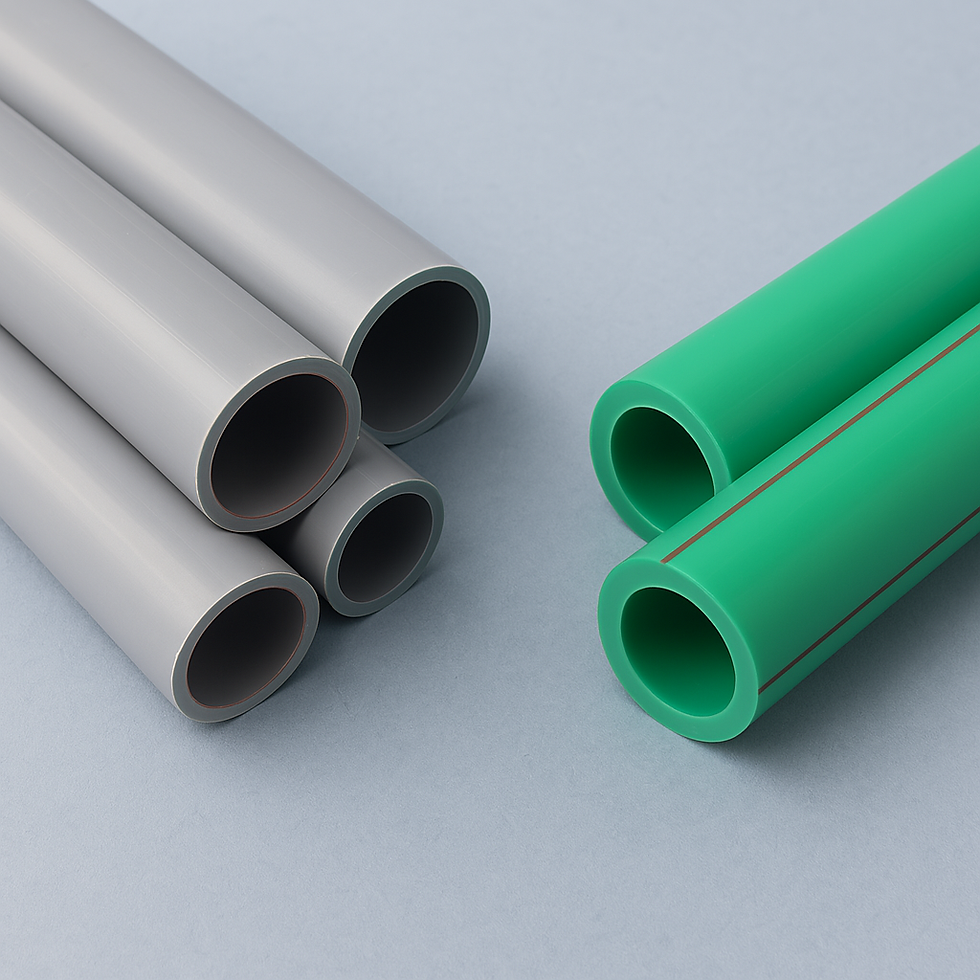Beyond the Surface: Exploring the Advantages of HDPE Pipes
- Adamjee DuraBuilt
- Jul 31, 2023
- 3 min read

High-Density Polyethylene (HDPE) pipes have become very popular across many industries due to their remarkable benefits and capabilities. These flexible pipes are a great option for various applications since they provide numerous advantages beyond the obvious. In this article, we'll look into HDPE pipes' benefits and examine how they're changing the landscape of contemporary infrastructure.
Superior Durability and Longevity
HDPE pipes are recognized for their exceptional toughness and durability. These pipes have a long service life because of their high-density polyethylene composition, which can endure harsh weather, chemicals, and abrasions. Because HDPE pipes are resistant to corrosion and do not break down due to wear and strain, they are long-term extremely reliable and cost-effective.
Exceptional Flexibility and Toughness
HDPE pipes' exceptional flexibility and durability is one of their most distinctive qualities. They are useful for installations in difficult terrain because they can bend without breaking when stiff pipes could fail. Due to HDPE pipes' flexibility, fewer connections and joints are required, lowering the possibility of leaks and assuring a continuous flow of liquids or gases.
Lightweight and Easy Installation
Since HDPE pipes are substantially lighter than conventional pipes, installation is facilitated and labor expenses are decreased. In addition to making transit easier, their modest weight makes on-site handling simple and quick. Due to their quick installation, HDPE pipes are a desirable solution for projects with constrained timelines.
Resistance to Chemicals and Corrosion
HDPE pipes are an ideal alternative for delivering diverse substances without degradation because of their exceptional chemical resistance. They also have a high level of corrosion resistance, which is a prevalent issue in severe situations. HDPE pipes preserve their structural integrity and avoid leaks whether they are used to convey water, sewage, or industrial chemicals, assuring secure and dependable operations.
Environmentally Friendly and Recyclable
As HDPE pipes are reusable and leave less carbon impact than other materials, they are environmentally beneficial. Selecting HDPE pipes for infrastructure projects supports the idea of a circular economy and sustainable practices. HDPE pipes support green activities by encouraging recycling and minimizing waste generation and are essential for protecting the environment.
Cost-Effectiveness and Low Maintenance
Considering HDPE pipes have a long lifetime and require little maintenance, they are a cost-effective alternative for infrastructure projects. Their durability and resistance to damage reduce the need for regular replacements, which over time results in a sizable cost reduction. Additionally, HDPE pipes require almost no maintenance, which further reduces operational costs and boosts the effectiveness of the project as a whole.
Leak-Free Joints and Sealing Integrity
The fact that HDPE pipes have leak-free couplings and good sealing integrity is one of its main benefits. HDPE pipes are connected using fusion welding, which produces a seamless joint that completely eliminates the possibility of leaks and water loss. For water supply systems and other applications where leakage could result in serious issues and pricy repairs, this functionality is essential.
UV Resistance for Outdoor Applications
HDPE pipes' resistance to UV makes them ideal for outdoor applications. HDPE pipes maintain their strength and performance even under adverse outside situations, in contrast to some other materials that can deteriorate when exposed to sunlight. They are therefore perfect for projects requiring the installation of pipes above ground, such as drainage systems and agricultural irrigation.
Versatility in Various Industries
Several industries, including the agricultural, construction, mining, municipal, and industrial sectors, use HDPE pipes extensively. They are a flexible option for a variety of applications due to their capacity to handle a wide range of fluids and contaminants. HDPE pipes provide dependable and effective solutions for a range of infrastructure demands, from gas distribution and geothermal installations to water supply and drainage systems.
Conclusion
The benefits of HDPE pipes go far beyond their outward appearance, making them a crucial component of the development of contemporary infrastructure. HDPE pipes provide a practical and sustainable solution for a variety of applications thanks to their exceptional strength, flexibility, and resistance to chemicals and UV rays. They are an excellent solution for infrastructure projects looking for longevity and efficiency because of their low maintenance requirements, environmental friendliness, and leak-free joints. HDPE pipes are in a prime position to play a significant part in defining a sustainable and resilient future as technology and innovation continue to advance.












Comments